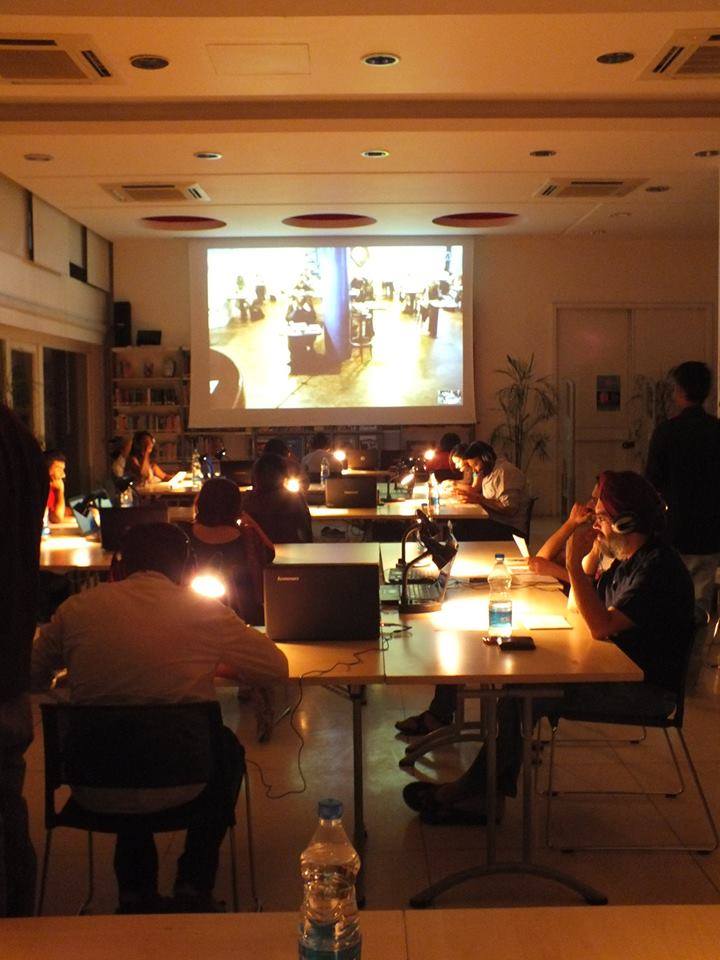Amitesh Grover is a theatre director, multi-media artist and more importantly, an interesting person. We met a few years ago over coffee and I remember us having an intriguing conversation that also involved my introduction to the concept of "social gaming". Grover wanted to explore the possibility of sharing thoughts and experiences, both personal and cultural, via digital media, with others located miles away. The interaction would be guided by an instruction-based game played by individuals who volunteered to participate in groups or otherwise. The outcome was unknown, often awkward, but sometimes intimate, as was intended by reality shows if not for their being scripted and sensationalised. Amitesh has since successfully organised many a game with collaborators in Australia, America and parts of Europe.
I decided to participate in this season's social game, Encounter 6134, part of the Schwindelfrei Theatre Festival, Mannheim, Germany and in collaboration with the Goethe-Institut/ Max Mueller Bhavan, New Delhi. 6,134 kilometres marks the distance between the two locations of performative action. The broad topics of discussion were "Beauty", "Crisis", "Time and Death", of which I picked "Beauty" fearing the risk of being morbid with the others. Scheduled over three days, with 20 participants per session, the "Encounters" spanned 19-21 September 2014.
A bit reticent of participating, I hurriedly entered the Max Mueller library on the designated date and time and picked a seat at random, before anyone attempted to speak with me. In front of each person lay a set of headphones and a stack of cards on which were printed photographs and notes on the subject of beauty, along with a list of instructions on how to play. Once the connection to Mannheim was made, I was introduced to my partner for the evening — a young Lebanese performance artist who was in Germany for the duration of the Theatre festival. Nervously, we briefly introduced ourselves and went on to pick up the cards, each of which would be discussed and unanimously accepted or rejected. Quotes from Donna Hannaway, Roland Barthes, Hegel and Karl Marx along with other theories and social categorisations confronted our comprehension of beauty. I was surprised at how much our cultures shared, yet how much we differed as individuals, and midway, found it a strain to continue a serious conversation. I was reminded of my school days when we hid behind anonymity and allegedly cool aliases in social chat rooms, typing for hours and never knowing who we were really talking to. Then there were moments when the card demanded my complete attention and I forgot that I ever felt instrumentalised into sharing my thoughts with a stranger. However, the few breaks in connection snapped me back to reality, subjecting the game to the judgments of my mind, and leaving me feeling silly. From being the player, I was the one being played.
But then again the conversation picked up and my polite friend in Germany and I continued to make sense of the strange topics in front of us. Before we both knew it, the line went dead halfway through a sentence; our designated hour was up. This was the end of the game. I barely realised how time flew!
What was the purpose of our "Encounter"? Why did we not have a chance to conclude our conversation? If this is how I felt, how did she feel about talking to me? This episode of dramaturgy was about audience behaviour, part of a genre called interactive or immersive theatre. The stage is replaced by the virtual interface where gesture and body language is marginalised, leaving room only for spontaneity and honesty in thought and speech. It is about sharing. It is an experiential performance. Through the hour, both real and virtual space is shared yet one does not pay heed to the real. Needless to say, I grappled with deconstructing the encounter-experience, and imagined what Amitesh may have expected from its concept and design. To me, herein lay the "beauty".


